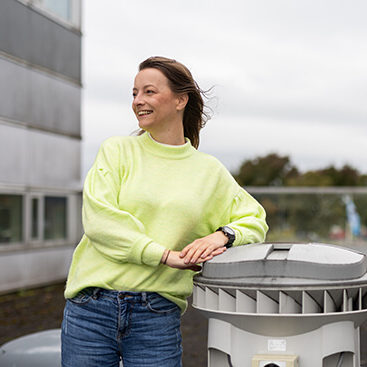Help! My employee calls in sick during the holidays
It’s summer. Suitcases are packed, out-of-office replies are flying around, and then: a sick call from an employee. Right before the holidays. Or worse: during. For many employers, alarm bells immediately go off. “Is this real? Are they trying to save vacation days?” That seed of doubt creeps in.
But let’s be honest: this is exactly the moment to dig deeper into the underlying cause.
Distrust vs. reality
First things first: getting genuinely sick during a holiday can happen to anyone. A nasty flu or an accident? No one wants that, but it does happen. “But this article is about something else,” says Aukje. “It’s about situations where someone breaks down from work pressure, stress or overload – often at the exact moment they finally find some rest. There’s usually more behind such a call than you think.”
Many employers question the sincerity of a sick call during this period. “Especially in summer, when workload for the remaining team is already higher, a sick call can feel like yet another burden. But sometimes, that call is actually a signal: the pressure has been too high for too long, and someone has finally hit the wall.”
Why does it happen around holidays?
It’s more common than you think:
- Employees who push themselves to “finish everything” before leaving, completely draining their energy.
- The mantra: “Just hold on until the holidays.” But once the rest begins, the system crashes.
- For many, summer feels like a mental finish line. They hold it together until then… and then the battery goes flat.
Aukje adds: “And on top of work pressure, there’s often life pressure too: kids, caregiving, financial stress. People can carry a lot, but no one can stay under high tension forever. At some point, something has to give.”
The role of the occupational physician: asking and digging deeper
This is exactly where the occupational physician steps in, says Aukje. “Not to judge whether someone is really sick, but to investigate why they can’t work. Is it workload? Personal issues? Or something else entirely? It’s not just about a medical assessment, but about finding connections and solutions to ensure sustainable recovery.”
At the same time, both employers and employees should know: if you call in sick during your holiday, the occupational physician may ask for proof. A doctor’s note stating you’re not fit to work or travel can prevent misunderstandings and provide clarity on both sides.
What can you do as an employer?
Aukje explains: “A clear absenteeism protocol is crucial, especially during holiday periods. Be explicit about how employees should report sick – even from abroad – and which steps they need to take. It prevents confusion and builds trust.”
“Invest in prevention too. Use preventive consultations, coaching, psychological support and other interventions to catch overload signals early. That way, you can prevent people from dropping out when it’s already too late.”
And perhaps most importantly: “Create an open culture where employees feel safe to say it’s too much. Where stress and workload can be discussed without judgment.”
A final note to remember
“Most employees don’t call in sick lightly,” Aukje concludes. “Give them – and yourself – the space to figure out what’s really going on. That way, after the holidays you don’t just come back with a tan, but with a healthier team ready to start fresh.”
Enjoy your holidays! 🌞

Get the latest insights
Want to receive more valuable insights on absenteeism, prevention, and sustainable employability? Then we have your attention – it’s time to take action. Sign up for our newsletter now!
We'd love to hear from you
Want to meet us? Have a question or looking for advice?
We're happy to help you get started.
